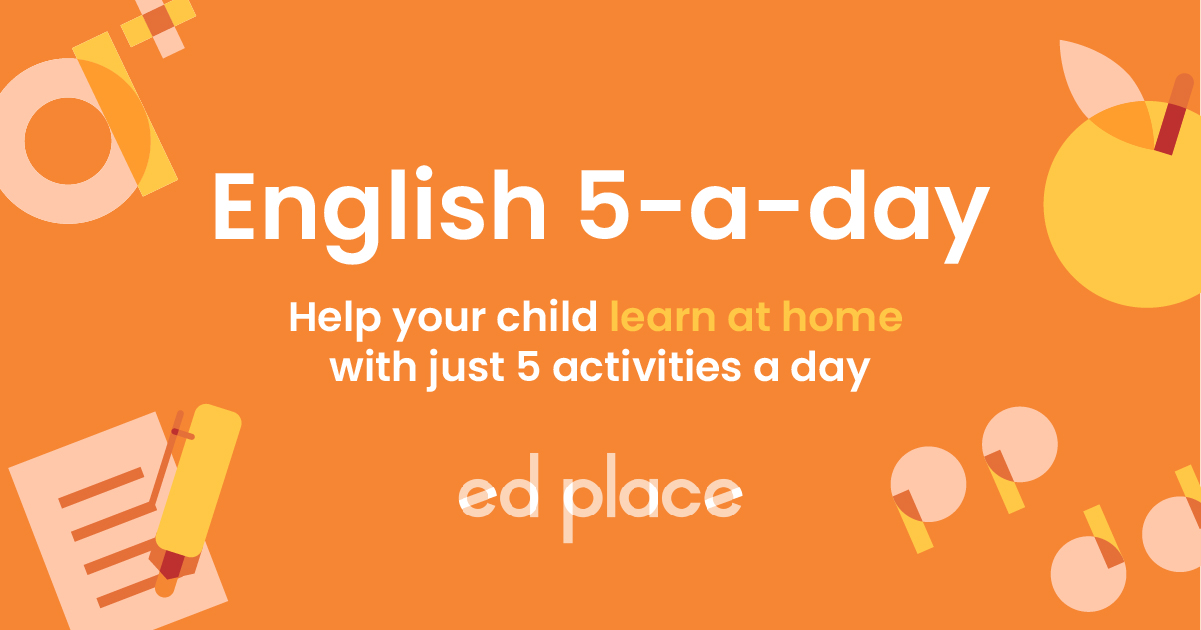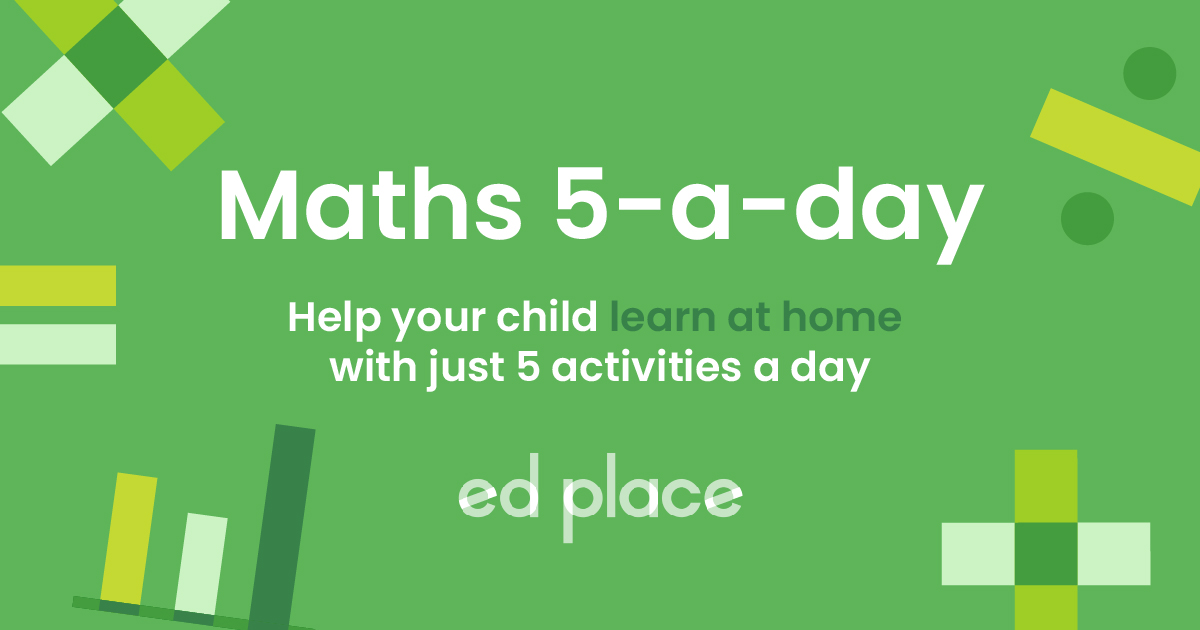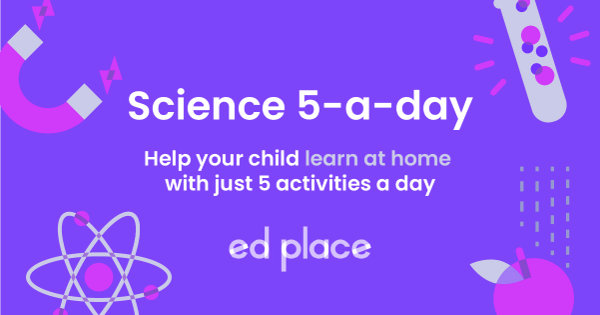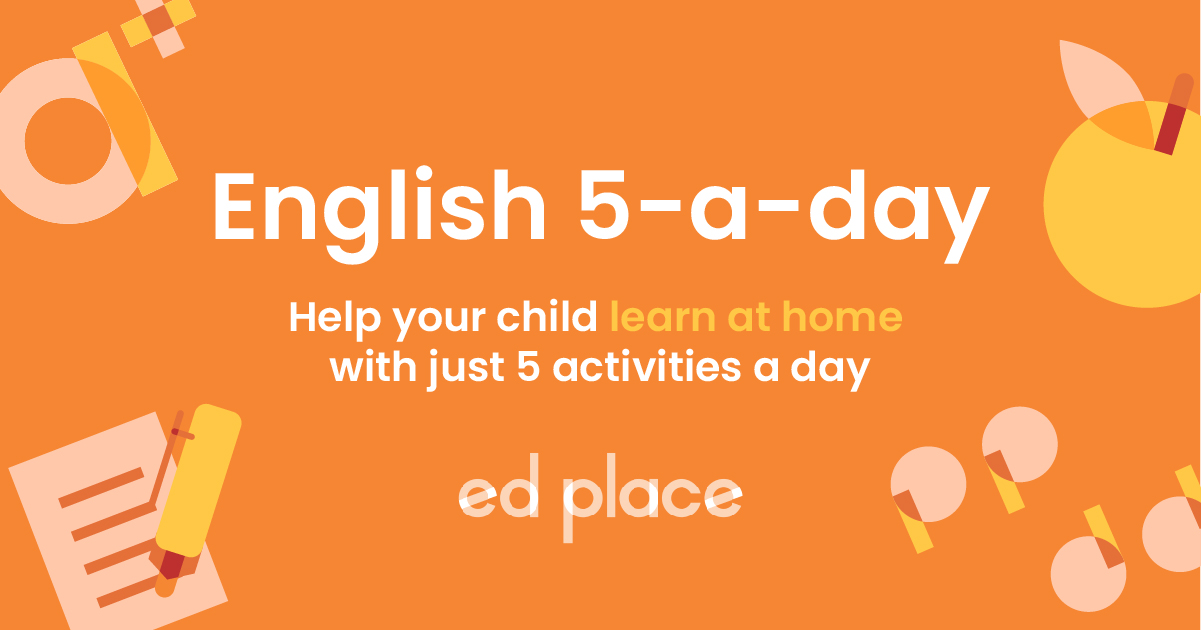
EdPlace's Y6 Home Learning English Lesson: Modal Verbs and Adverbs
Looking for short lessons to keep your child engaged and learning? Our experienced team of teachers have created English, maths and science lessons for the home, so your child can learn no matter where they are. And, as all activities are self-marked, you really can encourage your child to be an independent learner.
Get them started on the lesson below and then jump into our teacher-created activities to practice what they've learnt. We've recommended five to ensure they feel secure in their knowledge - 5-a-day helps keeps the learning loss at bay (or so we think!).
Are they keen to start practising straight away? Head to the bottom of the page to find the activities.
Now...onto the lesson!
Modal verbs and adverbs
What are they and why does my child need to know about them? This article will clearly explain what they are, what their purpose is and how they are used in writing.
We're sure that if you follow this article through, your child will be able to:
1) Explain what modal verbs and adverbs are
2) Apply them to their writing effectively
3) Explain the impact of modal verbs and adverbs in a piece of writing
Step 1: Vocabulary check!
It’s important to check your child’s understanding of these keywords before moving on as they will come up throughout the lesson.
Verb – verbs describe actions, states of meaning or motions - a 'doing' word (talk, jump, eat, think).
Adverb – adverbs describe a verb, adjective or another adverb.
Modal verb – modal verbs express possibility, show obligation, indicate ability or to give permission.
Modal adverb - a specific group of adverbs that add additional meaning to modal verbs.
Step 2 - So, what do we already know about modal verbs and adverbs?
Your child will have learned about verbs and adverbs in earlier year groups and will probably be able to identify both in a sentence:
Example: The boy ran quickly down the road.
verb – ran (the action)
adverb – quickly (how it was done)
- As all sentences contain at least one verb, we all use them in our everyday speech and writing even if we do not know what they are - I will walk to the shops.
- As children progress in their understanding, they are introduced to adverbs to add more detail to their writing - I will walk to the shops today.
- Across years 1 to 6 your child will have been introduced to how verbs and adverbs can be used to have impact in reading and writing – The old man staggered slowly along the path (verb – staggered, adverb slowly).
Step 3 - What's next for Year 6?
By the time they reach the end of key stage two, children need to be able to use modal verbs and adverbs in their writing to indicate degrees of possibility. They also need to be able to identify them when reading and explain their impact.
A: Using modal verbs:
There is a wide range of modal verbs to choose from.
Some examples of modal verbs:
- can, could, may, might, must, shall, should, will, would
However, the trick is to make sure that the modal verb used gives the required impact to the writing – we use them to show ability, possibility, obligation or permission.
Ability: We use modal verbs to indicate that something can be done.
- Amy can read.
Possibility: We use modal verbs to indicate how likely something is to happen.
- It might snow tomorrow.
- I will do my homework later!
Obligation: We use modal verbs to indicate when something is necessary/compulsory.
- You must do your homework now!
- You should get 8 hours sleep a night
Permission: We use modal verbs to indicate permission for an activity.
- Could I go out to play now?
- May I have some more ice-cream, please?
Top Tip:
You can use ‘not’ to a modal verb to produce the opposite meaning.
- I will not do my homework tonight.
- I should not have another piece of cake.
- I might not win the race.
B: Using modal adverbs: Modal adverbs add extra meaning to modal verbs.
One way of thinking about modal adverbs is to consider - ‘How likely is something to happen?’
- It is likely that I will do my homework tonight.
- Surely, I can go out to play now!
Step 4 - Putting it into practise in writing and reading
It’s always a good idea to practise new skills with your child to assess their understanding. Why not have a go at the activities below together!
Add an appropriate modal verb and adverb to the following sentences. Can your child explain the impact on each sentence?
1) I ________ ___________ return my library books.
2) ____________ it ___________ stop raining later.
3) The boy ___________ ___________ win the race.
Could your child now have a go at writing a couple of their own?
Challenge:
Underline the modal verb and adverb in each sentence. Then change them to alter the meaning of the sentence.
Example:
I probably will go to my friend’s birthday party. (might go)
becomes...
I absolutely must go to my friend’s birthday party. (will go)
4) My mum said that I definitely must do my homework before supper.
5) Yesterday, was a windy day, although the weather forecast said that it absolutely would not be windy.
6) My teacher said that I should quickly finish my work.
7) You really shouldn’t have eaten the last biscuit!
Step 5 - Show what you know
We hope your child is feeling more confident with synonyms and antonyms! If so, now is the perfect time for you to put them to the test. Here are some activities which will help to consolidate their learning. We recommend doing them in this order so that the learning builds progressively.
All activities are created by teachers and automatically marked. Plus, with an EdPlace subscription, we can automatically progress your child at a level that's right for them. Sending you progress reports along the way so you can track and measure progress, together - brilliant!
Activity 1: Understand Modal Verbs 1
Activity 2: Use Modal Verbs and Adverbs to Show Degrees of Possibility
Activity 3: Identify Adverbs in a Sentence
Activity 4: Understand Modal Verbs 2
Answers (examples - there are lots of possibilities):
1) I really should return my library books.
2) Maybe, it will stop raining later.
3) The boy absolutely must win the race.
Challenge answers:
4) My mum said that I definitely must do my homework before supper.
5) Yesterday, was a windy day, although the weather forecast said that it absolutely would not be windy. (not - added to make it negative)
6) My teacher said that I should quickly finish my work.
7) You really shouldn’t have eaten the last biscuit! (should not – negative)
Keep going! Looking for more activities, different subjects or year groups?
Click the button below to view the EdPlace English, maths, science and 11+ activity library








